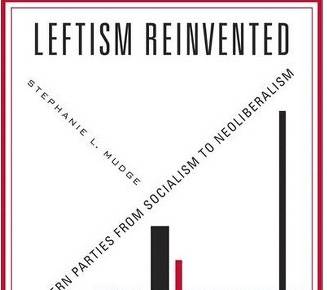
A shell-shocked young boy, about ten years old, emerges red-eyed from one of the ambulances, that shuttle back and forth between Syria and this Turkish hospital in Kilis, a few kilometres north of the border. The Syrian regime accuses Turkey of using these ambulances to run arms to the Free Syrian Army (FSA). Three men in their early twenties, two from Idlib and one from Aleppo, tell me that Bashar al-Assad will probably hang on to power.
“With the Russians and the Iranians behind him, how can he not?” one says.
“He hits us with planes and tanks,” says another. “We have no heavy weapons. European and American talk means nothing. You support Bashar too.”
All three claim to be fighters who have crossed illegally into Turkey. There’s no danger that they’ll be caught – Turkish troops can see everyone and everything crossing this flat and treeless land, and they tolerate the traffic – but old mines litter the landscape and occasionally go off. All say they will be back in Syria within a few days to continue the fight. As we’re speaking, two men in robes come out of the hospital crying, followed by the young boy I saw earlier.
Over 30,000 Syrians are dead, and around 100,000 refugees have crossed into Turkey. Wretched tent cities have sprung up on the Syrian side, clustered around border pillboxes and truck depots.
Sheep and long-haired goats graze on rubbish, a female shepherd listless beside them. Men in keffiyehs crouch on their haunches in the shade of the building in which passports and documents are checked, underneath the welcome sign to Free Syria. Most are wearing trousers and jackets, some are in full-length white or faded green robes. Assad’s portrait used to grace every office, but now his face only appears on doormats.
In the streets of Azaz lie the charred and twisted carcasses of at least three dozen Russian tanks, a few of them buried in the rubble of the buildings they destroyed. The town has been bombed from the air, turning much of the centre to dust, and large craters pockmark the streets. South of the town in an olive orchard lies a checkpoint, where I sit down with the soldiers in the shade of the olive trees on a small divan and several chairs. The leader doesn’t give his real name, as much of his family is still in government-controlled territory. He was a teacher near Lattakia, in the Alawite heartland on the Lebanese border, and fled his home two months ago.
“When Europe supports us, I mean really supports us with heavy weapons, Bashar won’t last 48 hours,” Mustafa says. “But the West supports Bashar. Every day he kills more people, but your governments do nothing.”
Europeans and Americans are limiting support to logistics and intelligence, and many people here believe that western governments want only to weaken Assad, not to topple him. Western governments fear that surface-to-air missiles could get into the wrong hands, and that if they arm the FSA then they themselves could get sucked in.
“I’m sorry that you have such a bad opinion of Muslims in your country,” says Mustafa. “We are not terrorists, and al-Qaeda isn’t here. We haven’t touched any church in Syria, and this isn’t even a sectarian conflict. We are fighting against tyranny.” But when pushed, he admits that most Alawites, the Shia sect from which Assad comes, will be dealt with harshly after the regime falls. He admits that Chechnyans and others have come to Syria, but he snorts at the notion that al-Qaeda and foreign jihadists could play a decisive role here.
Western governments and Israel fear the chaos that could succeed Assad’s regime, and Iran and Hizbullah fear the loss of an ally. Many Syrians loathe Iran for its support of Assad’s regime. But as more people die, Syrian resentment and mistrust of Western governments will likely grow, and the risk will intensify that political Islam of a more extreme variety will gain power.
This war risks destabilising Iraq and Lebanon. Cross-border shelling has recently killed several Turkish civilians, and Turkey has fired back. But the geopolitical calculations of intervention are devilish. Russia might abandon Assad in return for guarantees that its naval base at Tartus will survive. This, and the threat of a Turkish-led NATO no-fly zone, could be enough to convince Syrian generals to sacrifice Assad and take their chances with the rebels.
A strident Sunni democracy in Syria could make trouble for Israel over the Palestinians, but would also be no friend to Iran. On balance, a Sunni-dominated Syria hostile to Iran and Hizbullah may be in Israel’s interest. And if Western governments show Syrians that they are committed to Assad’s fall, then a more moderate political Islam could prevail against extremists and foreign jihadists.
This seething kaleidoscope of ethnicity and religion will not shift easily into multi-party democracy. Judicious outside support is needed, and continued hollow Western rhetoric could lead to far worse unintended consequences. Western governments want to prevent extremists from gaining power, but the present course will almost certainly lead to a shredded vacuum ideal for extremists.

